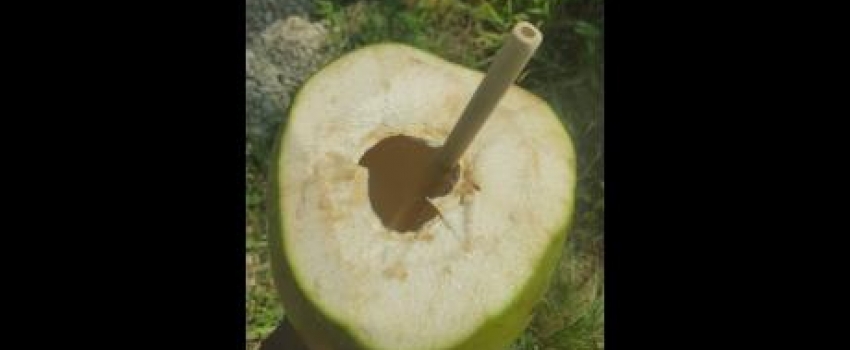You are here
Home | The future is bamboo - Jamaicans encouraged to go green with multiuse wonder plant

bamboo alternatives
Bamboo is being heralded as the perfect alternative to plastic and styrofoam products as Jamaica moves into a new phase on bans against materials that are largely considered to be harmful to the environment. “We are encouraging Jamaicans to grow bamboo because we help, as a small island nation, by doing that to clean up the environment,” said Bureau of Standards Jamaica (BSJ) Director of Special Projects Gladstone Rose in making his pitch for more Jamaicans to consider planting bamboo.
“Now, cutting trees is unfriendly because a tree takes 30-40 years to grow. The bamboo matures in three years and so we say to Jamaicans, don’t cut our trees, use bamboo,” Rose added, seeking to also woo manufacturers. Rose said the bamboo plant can make a viable eco-friendly alternative to styrofoam and plastic products.
“Bamboo makes a biodegradable plate and packaging and this is being internationally marketed,” he said, adding that Jamaica is a member state of the International Network for Bamboo and Rattan (INBAR).“Because we are a member of the international network, right now, two companies are seeking to invest in Jamaica,” he said.
Caribbean Bamboo Pulp and Paper and Eco Pulp and Paper will be making the pulp, which other companies will purchase and convert to diapers and toilet paper. “The alternatives have been damaging for the environment, so we are hoping that with the biodegradable nature of bamboo, we are then helping to mitigate climate change,” he said.
A lesser-known wonder of the bamboo plant, which is estimated to cover 65,000 hectares locally, lies in its potential to be a viable substitute for traditional charcoal, which is being used by roughly 34,000 local households. “We have helped develop that product internationally. Jamaica was the first country to export bamboo charcoal to the United States and certified by the United States Development of Agriculture, and I believe we are still the only ones that export organic bamboo charcoal,” he said.
While admitting that Jamaicans have not yet been educated on the potential of the more environmentally friendly bamboo charcoal, Rose said that the cost difference is not significant. Bamboo charcoal costs a little more but “the real cost to the environment means that the tree charcoal is really more expensive because you’re cutting down trees that take long to grow”. Director of the Science and Technology Division, Dwight Ramdon, told Gleaner editors and reporters that bamboo can grow virtually anywhere.
“It is one of the most durable plants and some farmers have difficulty getting rid of them,” Ramdon said. Rose agreed that bamboo can become invasive, but internationally, where bamboo is being managed, it only grows where farmers want it to grow. “Our yam farmers use the bamboo as yam sticks. They do it all over the country, and so it takes on this invasive characteristic because they are not managing for bamboo, they’re managing their yam, and then they abandon acre after acre, so it appears to take over,” Rose explained.
Rose explained that bamboo souvenirs made without proper preservation techniques often give the plant a bad name.
“The bamboo has a powder post beetle that can attack the bamboo after you cut it, so if you don’t get the knowledge that we have at the Bureau on how to preserve your bamboo, and you just go and use it and knock it together to make a little hut or a bench, in four months, it can go to dust,” Rose said.
He said that if properly treated, bamboo furniture can have a lifespan similar to wood and some of these techniques are shared by the BSJ’s Bamboo Enterprise Development Programme in its monthly sessions to train people to use bamboo to produce furniture and other products.
Angelica Dempster, a 22-year-old university student, began making bamboo straws shortly after plastic straws, so-called ‘scandal’ bags and the importation of styrofoam containers were banned on January 1 this year. “The Bureau of Standards helped me in perfecting my product. They ensure that they are clean, there’s no bacteria, and they test them [for cold and heat endurance],” she said.
In addition to bamboo straws, The Likkle Bamboo Hut produces coconut bowls, bamboo cups, and bamboo utensils.
“I am trying to make bamboo wine using bamboo shoots and I am going to use the bamboo leaves for the beer. I exported 1,000 straws to Spain and I got a good feedback from them. Hotels and little cafés in Spain have been contacting me for straws,” Dempster said. As it relates to the local take-up, Dempster has contracts with a few companies in Kingston and Negril and she also does individual orders.
Source: http://jamaica-gleaner.com/article/lead-stories/20191231/future-bamboo-jamaicans-encouraged-go-green-multiuse-wonder-plant
|
|
|
Hope Gardens, Kingston 6, Jamaica
Opening hours:
Mondays - Thursdays 8:30 a.m. - 5:00 p.m.
Fridays 8:30 a.m. - 4:00 p.m.
MoAFM Customer Feedback System: https://www.moa.gov.jm/customer-feedback
|